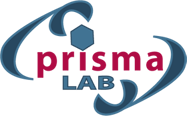Master's Course in Automation Engineering and Robotics
Academic Year 2025/2026
Instructor: Prof. Mario Selvaggio Questo indirizzo email è protetto dagli spambots. E' necessario abilitare JavaScript per vederlo.
(last update: 10/09/25)
Class Schedule
- Monday, 8:30-10:30 (Room NA-T-A5 Agnano)
- Wednesday, 8:30-10:30 (Room NA-T-A6 Agnano)
Lectures are in person. Microsoft Teams (MT) platform will be used in case of attendance issues, to share class materials, and general course's organization. Students are kindly invited to join the MT class with code gu84djp.
Teaching Assistantship
Send an email (using the tag [RL2025] in subject) to the instructor or to the assistant(s) to communicate with us. You can book a 1-hour meeting via the appointment scheduling feature provided by google calendar. The assistantship will be provided in person and/or via the MT platform.
Aim of the Course
In this course you will learn how to efficiently build robotic applications using the Robot Operating System (ROS), that provides you access to a large set of open-source software and tools. Students will learn from partaking in practical activities.
Student learning objectives
- Understanding the ROS architecture, programming, and tools
- Creating ROS C++ programs using external libraries
- Simulating and controlling a robotic system to perform a task
Syllabus (updated frequently)
- Introduction and course overview
- Programming for robotics:
- Preliminary setup: Linux operating system, git, docker, C++ programming
- ROS introduction, programming & tools
- ROS robot simulation
- ROS robot motion planning
- Motion control of robotic manipulators:
- Kinematics and dynamic control algorithms
- Trajectory planning
- Robotic vision:
- Computer vision
- Visual servoing
- Control of mobile robots:
- Differential drive mobile robot
- Navigation & SLAM
Textbook
No textbook recommended. Links to useful online resources will be shared along the course.
Exams
The exam consists of an oral discussion of a technical project developed along the course. For course attenders, classwork and homeworks will be used to assess the student's knowledge. Students not attending are required to contact the instructor to define the technical project to be developed in simulation.
Detailed schedule
More information can be found on the instructor website: http://wpage.unina.it/mario.
